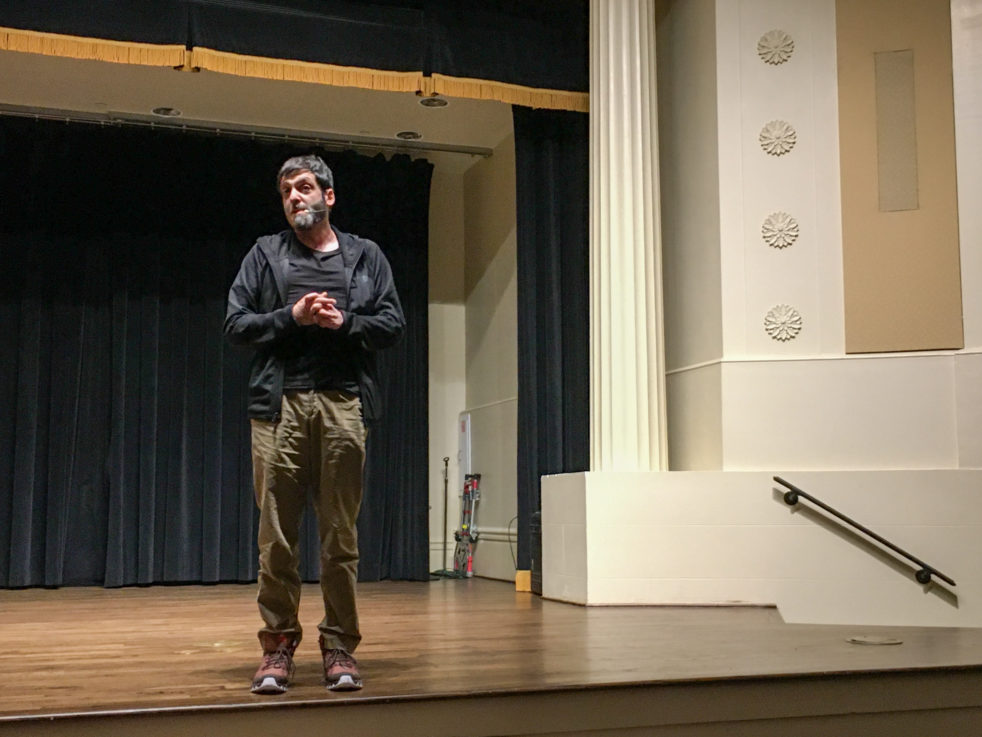Whether it is nervous fidgeting or biting fingernails, breaking small habits can come as a big challenge. From saving rates to educational achievements, behavioral economists strive to analyze and even change human patterns more complicated in scope.
The three-time New York Times bestselling author Dan Ariely is one such behavioral economist. On Feb. 9, the Chabad at Tech, in collaboration with its Intown partner, hosted Ariely at the Academy of Medicine.
With TED talks that have been watched over 15 million times, Ariely directly addressed campus to discuss this endeavor of changing human patterns through “Unraveling the Mysteries of Human Behavior.”
“When we think about the state of the world, it is very clear that the state of the world is not where we would like it to be,” said Ariely. “There is a big gap. And the question is how do we narrow that gap?”
Ariely’s question was not a rhetorical one, as he shifted responsibility to the audience and urged them to consider the gaps between an ideal future and the current reality in their own personal lives.
“It’s always easy to talk about what other people are not doing right, but we can also think introspectively about ourselves. How many people in this room in the last month have eaten more than they think they should?” He asked.
“How many in the last month have exercised less than they think they should? How many of you in the last month have not slept enough?”
Ariely explained how behavioral economists can be used to help bridge these gaps between the ideal and the existent, specifically in terms of public policy.
He explained his work in reforming nutritional markings in Israel, replacing detailed food labels with either a green or red circle. Per convention, a green circle signals healthy foods whereas red signals unhealthy, and the simple system minimizes any excess for consumers.
Ariely explained his unconventional approach of reducing information, as this sharply contrasts with the more popular doctrine of classical economics to spread as much information as possible.
“We usually think about giving people information — that if we give people information, they would make the right decision,” said Ariely. “But there is actually no evidence for this.”
Ariely pointed to the minimal return on financial literacy, as the U.S. spends around 700 billion dollars while savings have only improved by 0.1% — “That’s not zero percent, but as humanly possible to zero as you can get,” he joked. He also noted that rates of texting and driving have increased even though education about its dangers has also increased.
With such disheartening statistics, Ariely discussed the importance of a new approach to changing human behavior.
“The key is not to change the person but to change the environment,” he said, as he compared changing human behavior to sending a rocket to space in terms of both friction and fuel.
“Is the easy behavior and the right behavior aligned? If they are not, there is extra friction. And then how do we add motivation?”
Through eliminating barriers and adding incentives, Ariely suggested that human behavior can ultimately be changed. He also addressed the way in which the architect of an environment influences its inhabitants.
“We walk around the world in choice architecture, and environment matters,” said Ariely. “Almost every entity around us wants something from us right now. Every shop wants us to buy something today, every app wants us to check it today.”
“You go to the supermarket and you have a plan, but the supermarket also has a plan,” Ariely continued. “And the supermarket’s plan is not the same as yours. And the supermarket controls the environment, so who do you think wins?”
As control of environments have eroded, Ariely argued that the assumption of the rationality of individuals that is found in classical economics has also eroded.
Ariely argued that to change human behavior, the approach must first be changed.
“You can look at the state of the world and say, ‘This is the outcome of 8 billion rational people, and this is the best we can get?’ Or you can look at it and say, ‘This is the outcome of 8 billion irrational people working in a suboptimal system and there is lots of room for improvement.’”
“We can do so much better,” said Ariely, “if we just build a better environment.”
